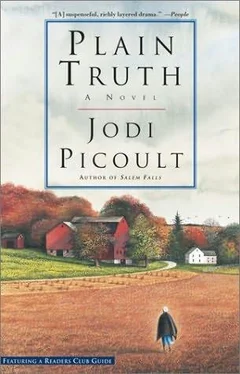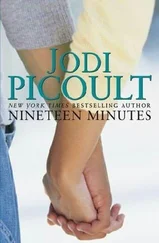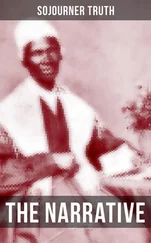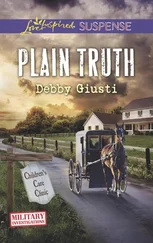I shrugged. I wasn’t looking for company anyway. I started back toward the house, but stopped at the sight of a handful of wildflowers, left at the northernmost edge of the pond. Resting just out of reach of the graceful arms of a willow tree, they were neatly tied into a bouquet. Kneeling, I touched the Queen Anne’s lace, the lady’s slippers, the black-eyed Susans. Then I glanced at the field of corn, wondering for whom they had been left.
“While you’re here,” Sarah said, handing me a bowl of peas, “you’ll help out.”
I looked up from the kitchen table and bit back the retort that I was already helping, just by being here. Thanks to my sacrifice, Katie was here with her own bowl of peas, which she was shelling with remarkable industry. I watched her for a moment, then slid my thumbnail into the pod, watching it crack open as neat as a nut, just as it had for her.
“Neh . . . Englische Leit . . . Lus mich gay!”
Aaron’s voice, quiet but firm, snaked through the open kitchen window. Wiping her hands on her apron, Sarah glanced out. Drawing in her breath, she hurried toward the door.
Then I heard English being spoken.
Immediately, I turned to Katie. “You stay here,” I ordered, and walked out. Aaron and Sarah were holding their hands over their faces, cringing away from the small crowd of cameramen and reporters who’d descended on the farm. One news van had the audacity to park right beside the Fisher buggy. There were dozens of questions being shouted out, ranging from queries about Katie’s pregnancy to the sex of the dead baby.
Lulled by the quiet and peace of a bucolic farm, I’d forgotten how quickly the media would pick up on the court record of an Amish girl being charged with murder in the first degree.
Suddenly I remembered the summer I fancied myself a photographer, and how I’d pointed my Kodak at an unsuspecting Amishman in a buggy. Leda had covered the camera lens, explaining that the Amish believed the Bible prohibited a graven image, and didn’t like to have their pictures taken. “I could do it anyway,” I had said, stung, and to my surprise Leda nodded-so sadly that I’d put my camera back in its case.
Aaron had given up trying to ask the reporters to go away. It wasn’t in his nature to cause a scene, and he’d wisely assumed that if he offered himself as a target, it would keep Katie safe from their prying eyes. Clearing my throat, I marched to the front of the fray. “Excuse me, you’re on private property.”
One of the reporters took in my shorts and top, in direct contrast to Aaron and Sarah’s clothes. “Who are you?”
“Their press secretary,” I said dryly. “I believe you all are in direct violation of criminal trespassing, which, as a misdemeanor of the third degree, could result in up to a year in jail and a twenty-five-hundred-dollar fine.”
A woman in a tailored pink suit frowned, trying to place me. “You’re the lawyer! The one from Philly!” I glanced at the call letters on her microphone; sure enough, she was from a city-based network affiliate.
“At this time, neither my client nor my client’s parents have any comment,” I said. “As for the incendiary nature of the charge, well”-I smirked, gesturing to the barn, the farmhouse, the quiet lay of the land-“all I’m going to say is that an Amish farm is no Philadelphia crack house, and that an Amish girl is no hard-core criminal. The rest, I’m afraid, you’ll have to hear on the steps of the courthouse at some later date.” I cast a measured look out over the crowd. “Now-a little free legal advice. I’m strongly recommending that you all leave.”
Reluctantly, they shuffled off in a pack, like the wolves I always pictured them to be. I walked to the end of the driveway, keeping watch until the last of their cars pulled away. Then I started back up the gravel incline, to find Aaron and Sarah standing side by side, waiting for me.
Aaron looked down at the ground as he spoke gruffly. “Perhaps you would like to see the milking sometime.”
It was the closest he would come to an admission of gratitude. “Yes,” I said. “I would.”
Sarah made enough food to feed the whole Amish community, much less her own small household plus one live-in guest. She brought bowl after bowl to the table, chicken with dumplings and vegetables swimming in sauces, and meat that had been cooked to the point where it broke apart at the touch of a fork. There were relishes and breads and spiced, stewed pears. In the center of the table was a blue pitcher of fresh milk. Looking at all the rich choices, I wondered how these people could eat this way, three times a day, and not grow obese.
In addition to the three Fishers I’d met, there was an older man, who did not bother to introduce himself but seemed to know who I was all the same. From his features, I assumed he was Aaron’s father, and that he most likely lived in the small apartment attached to the rear of the farmhouse. He bent his head, which caused all the others to bend their heads, a strange kinetic reaction, and began to pray silently over the food. Unsettled-when was the last time I’d said grace?-I waited until they looked up and began to ladle food onto their plates. Katie raised the pitcher of milk and poured some into her glass; then passed it to her right, to me.
I had never been a big fan of milk, but I figured that wasn’t the smartest thing to admit on a dairy farm. I poured myself some and handed the pitcher to Aaron Fisher.
The Fishers laughed and talked in their dialect, helping themselves to food when their plates were empty. Finally, Aaron leaned back in his chair and let out a phenomenal belch. My eyes widened at the breach of etiquette, but his wife beamed at him as if that was the grandest compliment he could ever give.
I suddenly saw a string of meals like this one, stretching out for months, with me prominently cast as the outsider. It took me a moment to realize that Aaron was asking me something. In Pennsylvania Dutch.
“The chowchow,” I said in slow, careful English, following his gaze to the particular bowl. “Is that what you want?”
His chin went up a notch. “Ja,” he answered.
I flattened my hands on the table. “In the future, I’d prefer it if you asked me questions in my own language, Mr. Fisher.”
“We don’t speak English at the supper table,” Katie answered.
My gaze never left Aaron Fisher’s face. “You do now,” I said.
By nine o’clock, I was ready to climb the walls. I couldn’t run out to Blockbuster for a video, and even if I could have, there was no TV or VCR for me to watch it on. An entire shelf of books turned out to be written in German-a children’s primer, something called the Martyr’s Mirror, and a whole host of other titles I could not have pronounced without butchering. Finally I discovered a newspaper written in English-Die Botschaft-and settled down to read about horse auctions and grain threshing.
The Fishers filed into the room one by one, as if drawn by a silent bell. They sat and bowed their heads. Aaron looked at me, a question in his eyes. When I didn’t respond, he began to read out loud from a German Bible.
I’d never been very religious; and completely unawares, I’d been tossed into a household that literally structured itself on Christianity. Drawing in my breath, I stared at the newspaper and let the letters swim, trying not to feel like a heathen.
Less than two minutes later, Katie got up and walked over to me. “I’ll be going to bed now,” she announced.
I set aside the paper. “Then I will too.”
After coming out of the bathroom in my silk pajamas, I watched Katie sit on her bed in her long white nightgown and comb out her hair. Unpinned, it fell nearly to her waist and rippled with every stroke of the brush. I sat cross-legged on my own twin bed, my hand propped on my cheek. “My mother used to do that for me.”
Читать дальше












